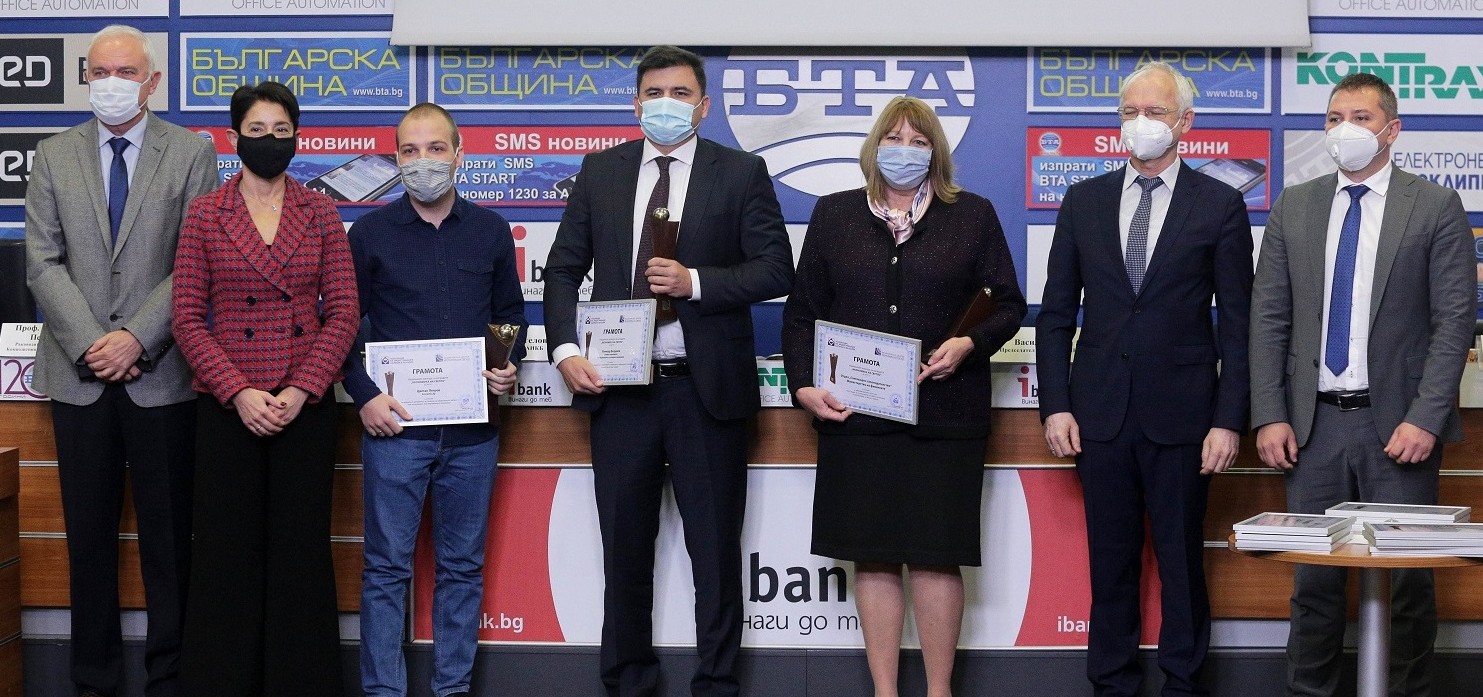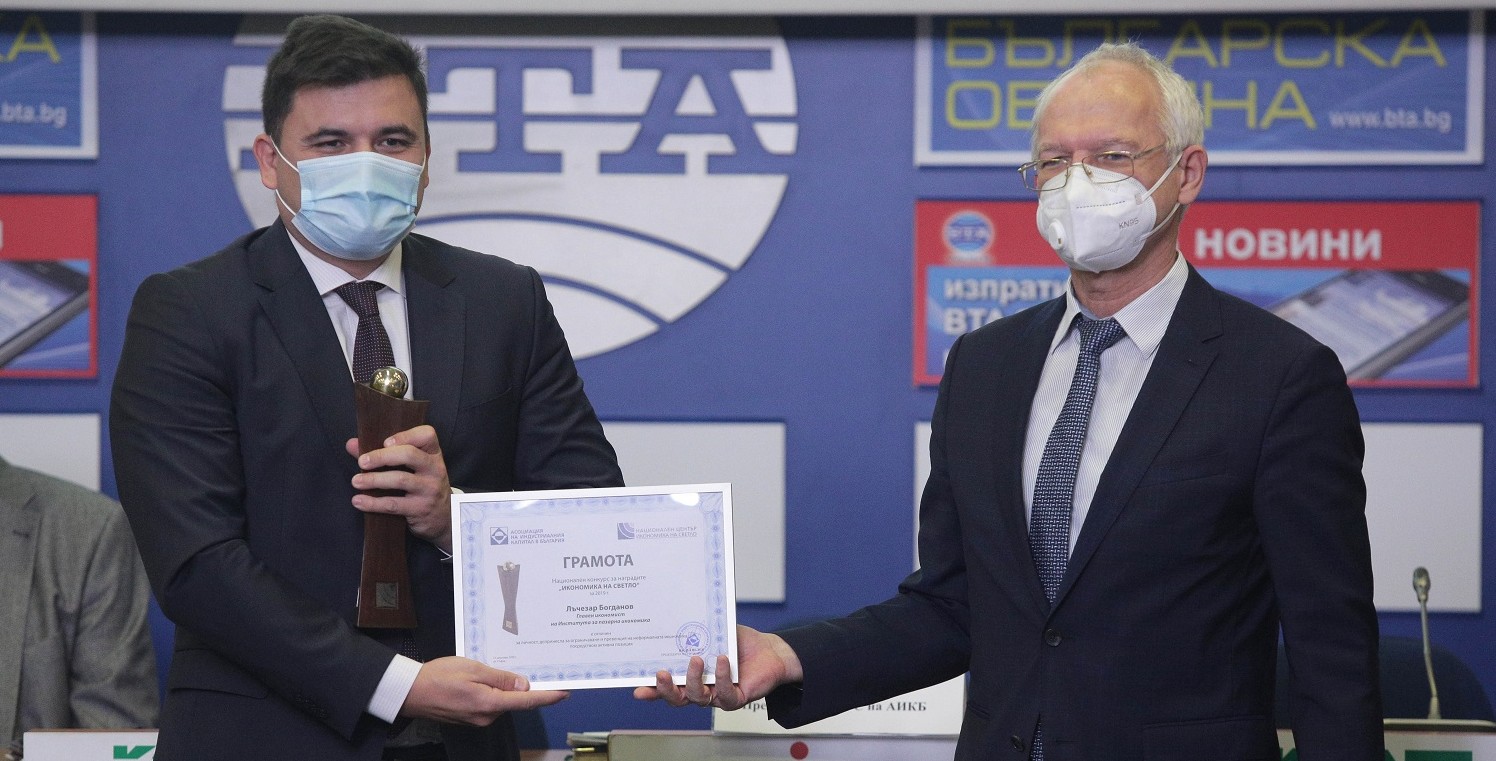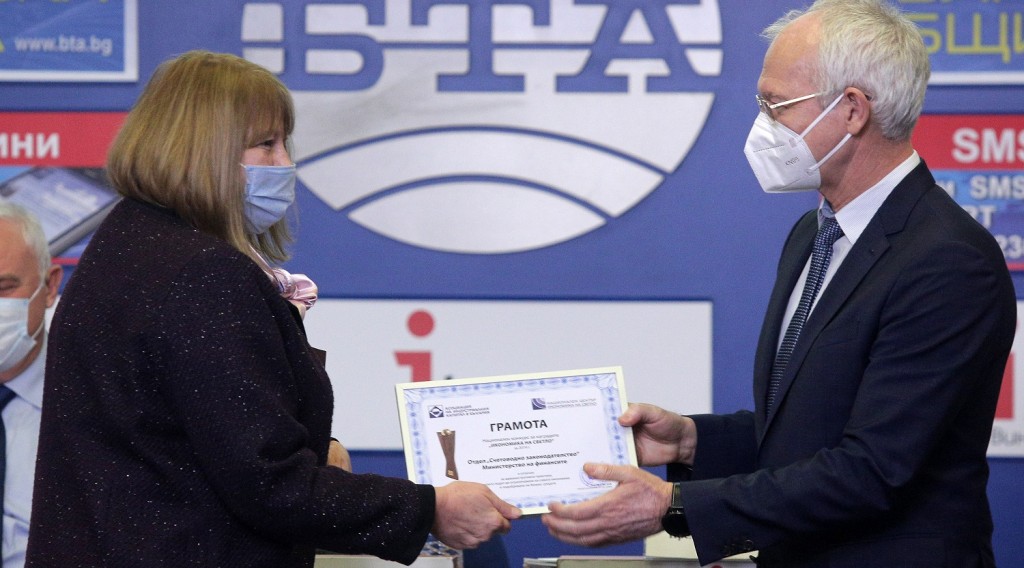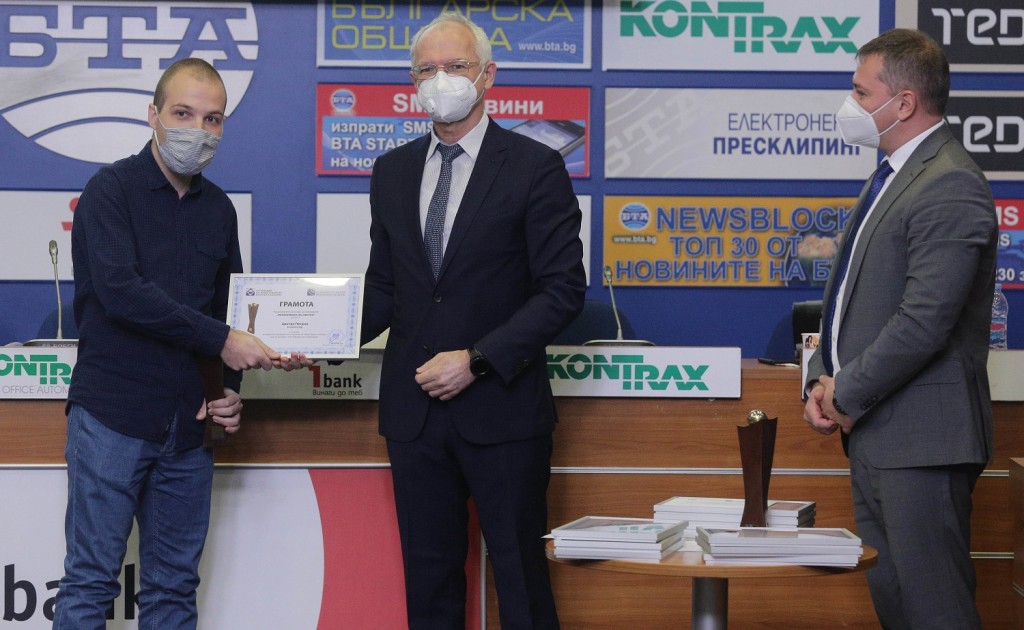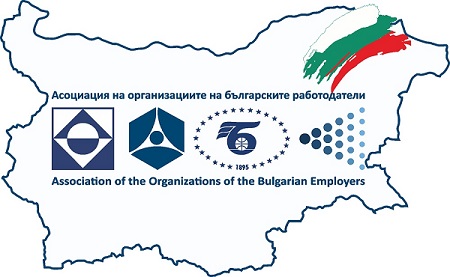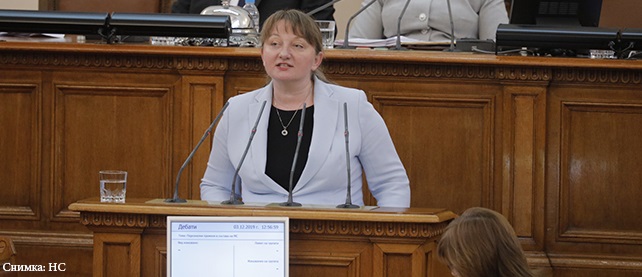TO
MRS. TSVETA TSARAYANCHEVA
CHAIRMAN OF THE 44TH NATIONAL ASSEMBLY
DEPUTIES IN THE 44TH NATIONAL ASSEMBLY
SUBJECT: Proposals for amendment and supplementation of the Law on Measures and Actions during the State of Emergency, announced by a decision of the National Assembly of 13.03.2020
LADIES AND GENTLEMEN,
The representative at the national level organizations of employers BICA, BIA, BCCI and CEIBG, united in AOBR, whose members provide employment to over 82% of employees in Bulgaria to maintain employment and support the income of working people within the allocated resource of 1 billion, we express our concern at the fact that with more than 60,000 forced shutdowns and more than 350,000 companies affected by the crisis, with 5,000 people losing their jobs every day, only 228 companies (which is a statistical zero) want to benefit from the support under paragraph 6 of the LMI. The reason why well less than 1% of enterprises see the possibility of keeping jobs under the proposed order is in the essential defects of the law (in paragraphs 4 and 6 of its transitional and final provisions), which work in the direction contrary to what is desired – instead of helping to keep jobs through reasonable compensation, these rules make it impossible to keep employment by ordering the worker to receive his gross salary (ie all his salary) for the time he does not work. In this situation, the company is forced to dismiss the worker, for whom it is forbidden or unable to provide work, because is unable to pay the same worker full remuneration for any work. And then the unemployment benefit is fully covered by the state, for a period of up to one year, instead of being kept in employment at lower cost. ordering the worker to receive his gross remuneration (ie all his remuneration) for the time during which he does not work. In this situation, the company is forced to dismiss the worker, for whom it is forbidden or unable to provide work, because is unable to pay the same worker full remuneration for any work. And then the unemployment benefit is fully covered by the state, for a period of up to one year, instead of being kept in employment at lower cost. ordering the worker to receive his gross remuneration (ie all his remuneration) for the time during which he does not work. In this situation, the company is forced to dismiss the worker, for whom it is forbidden or unable to provide work, because is unable to pay the same worker full remuneration for any work. And then the unemployment benefit is fully covered by the state, for a period of up to one year, instead of being kept in employment at lower cost.
The obligation to pay the full amount of the remuneration of employees, without any consideration, without work, is not supported by either legal or economic doctrine. This is an obligation for companies to pay equally to a worker who has worked full time and to a worker who has worked ½ working time, and to one who has not worked at all for the same period. Such an obligation does not compensate for missing income from unpaid work, but pays full remuneration for no work. This is not compensation, but damage to the company and its employees, who must make and provide money for such unjustified compensation, which benefits only the unemployed.
The principle of compensating for unearned income presupposes giving part of the unearned income, never giving all the income. This is also the case when determining the amount of pensions, where they are a little over 40% of the insurance income, as the asking value is 60%. Unemployment benefit is 60% of the salary received. This is because these payments are a replacement income that replaces the employee’s earnings during the time he is not working and in no case can they and should not compensate 100% for the missing income, because it is deprived from economic and social security logic and will lead to distortion of the social security model. In addition, account should be taken of the fact that when no work is done, maintenance costs fall – by an average of 40% according to objective studies.
In order to maximize, efficiently and effectively use the limited financial resources of the state, so that within the same resource to provide more people with adequate support, especially where it is most needed, full compensation of income may be acceptable only in terms of wages equal to the minimum wage, and as income increases, the intensity of compensation should decrease.
Due to the extremely short deadlines for adoption, the Act also suffers from other omissions and contradictions that need to be addressed.
§4, item 2 of the Transitional and Final Provisions (TFP) of the Labor Code in the Labor Code (LC) creates a new legal institute “suspension of work in a declared state of emergency”, without giving it a legal definition.
Currently, the Labor Code deals with the concepts of “suspension of work” and “cessation of activity” of the enterprise. The concept of “termination of the enterprise” was introduced in the Labor Code in 2010 to regulate the possibility of an employee to terminate his employment, in cases where the employer, the person representing him or the person designated to receive the correspondence of the employer cannot be found at the address of management specified in the employment contract. According to §1, item 14 of the Additional Provisions of the Labor Code, “cessation of activity is the actual cessation of the production and / or economic activity of the enterprise for more than 15 working days without a stay or suspension of work, due to technological reasons or production needs’.
In practice, in such a situation, the activity of the employer is stopped and the employee is at a standstill. The introduction of a new legal institute raises the question of what is the difference between suspension of work, stay and cessation of activity without adding value. For this reason, we believe that the established institutions (suspension of work) should be used, the application of which is clear and consistent.
With §4, item 5 of the TFP LMDVIP a new art. 267a of the Labor Code – “Remuneration in case of termination of work in a declared state of emergency”, according to which for the time of termination of employment the employee is entitled to his gross remuneration.
Remuneration is the consideration by the employer against the provision of labor to the employee. Therefore, outside the established exceptions (eg, when using paid annual leave), if the employee’s obligation to perform work is suspended, the counter-obligation for the employer to accrue and pay wages is also suspended. Insofar as the employment relationship for the period of suspension of work has not been terminated, the employee will be entitled to paid annual leave (argument art. 351, para. 1 LC), which will additionally burden the enterprises financially.
The obligation to accrue and pay the gross remuneration of workers during their stay, linked to the obligation to accrue and pay the gross remuneration in a state of emergency by non-operating enterprises, for an indefinite period of time, is a prerequisite for achieving the exact opposite of the intended effect, namely redundancies instead of maintaining employment .
§6 of the TFP LMVVIP introduced a rule according to which during the operation of this law, but for a period not exceeding three months, the National Social Security Institute transfers 60 percent of the amount of insurance income for January 2020 to persons insured under Art. 4, para. 1, item 1 of the Social Insurance Code by insurers meeting the criteria set by an act of the Council of Ministers. The funds are transferred by bank transfer to the respective insurer . In case the insurer does not pay the full amount of the remuneration to the employees for whom the funds have been received, he is obliged to reimburse them.
By Decree № 55 of 30 March 2020 determining the terms and conditions for payment of compensations to employers in order to maintain the employment of employees in the state of emergency, declared by a decision of the National Assembly of 13 March 2020 (the Decree) , The Council of Ministers adopted criteria and procedure for applying by employers for compensation. The measure is designed in a way that hinders the opportunities to help those who need support the most. There is a real danger that most employees in companies whose activities are affected by anti-epidemic measures will be left without any income due to the inability of companies to provide 40 percent of wages, social security contributions and the ability to pay the full amount of wages to employees. ,, for which compensation has been received for twice as long as the current order. At the same time, a number of companies will have to incur significant costs to make redundancies in order for workers to register and receive unemployment benefits. In addition, for mass layoffs, the procedure takes between 30 and 45 days. If an employer does not meet the criteria set out in the Decree, or as is the case in general – does not have the financial resources to pay 40% of gross wages plus nearly 20% insurance in case of work stoppage, workers are at risk of not having any financial resources – neither in the form of wages nor in the form of benefits. a number of companies will have to incur significant costs to make redundancies in order for workers to register and receive unemployment benefits. In addition, for mass layoffs, the procedure takes between 30 and 45 days. If an employer does not meet the criteria set out in the Decree, or as is the case in general – does not have the financial resources to pay 40% of gross wages plus nearly 20% insurance in case of work stoppage, workers are at risk of not having any financial resources – neither in the form of wages nor in the form of benefits. a number of companies will have to incur significant costs to make redundancies in order for workers to register and receive unemployment benefits. In addition, for mass layoffs, the procedure takes between 30 and 45 days. If an employer does not meet the criteria set out in the Decree, or as is the case in general – does not have the financial resources to pay 40% of gross wages plus nearly 20% insurance in case of work stoppage, workers are at risk of not having any financial resources – neither in the form of wages nor in the form of benefits.
In order to achieve a real effect of the proposed measure and to overcome the identified problems, it is necessary that employers are not burdened with the cost of wages and related social security contributions, in cases where the work of the company is stopped (completely or partially) and when the employee does not work. For the period of stay, the employee should receive compensation from the Unemployment Fund, while retaining his job.
In order to avoid discrimination between compensation of workers and employees who are in residence and those who work part-time, we offer the income of part-time workers under Art. 138a, para. 2 to be supplemented with compensation in the amount proportional to the unworked time.
The proposal makes it possible to preserve the interests of employees, employers and those of the fiscal authorities at the same time, insofar as the period of up to 3 months of compensation is reduced, compared to the case where the same persons can receive the same amount of compensation for a period. up to 12 months. In this way, the employer will keep the employment in his company.
In view of the above, our unanimous opinion is that in order for a measure to maintain employment to be working, a legislative change is needed, through which the funds can directly and partially support the absent incomes of employees without making them unenforceable. conditions for enterprises. Our proposal is in this direction.
- In the PZR ZMDVIP, § 4., vol. 2:
- Amend the title to read as follows: replace the word “suspension” with the word “suspension” and to read as follows: “Suspension of work in a state of emergency”
- The text of paragraph 120c shall be amended as follows:
“Where, in the event of a state of emergency, anti-epidemic measures have been introduced restricting the activity directly or indirectly, the employer may, by order, suspend the operation of the undertaking, part of it or individual employees.”
The current wording of paragraph 2 regulates a non-existent hypothesis by which the operation of the enterprise or part of it is terminated by an order of a state body. An obligation is created for the employer not to admit the employees to their workplaces for the period specified in the order. Order RD-01-124 of 13.03.2020 of the Minister of Health does not suspend the work of the enterprises, but suspends the visits to a number of sites. The proposed wording of Art. 120c reflects the actual situation.
- In the TFP ZMDVIP, § 4., item 3, letter “a”:
Al. 2 of Art. 138a to be amended as follows:
“(2) In the enterprise, in part of it or for individual workers or employees, the employer may establish for the whole period of declared state of emergency or for part of this period part-time work for the workers and employees who work full time.”
The proposed wording allows the employer flexibility in establishing part-time work, according to its real need.
- In the PZR ZMDVIP, § 4., vol. 4:
Paragraph 1 of Art. 173a to be amended as follows:
The words “by order of the employer or by order of a public authority” shall be deleted and the word “suspended” shall be replaced by the word “suspended” and the text shall be amended as follows:
“(1) When, due to a declared state of emergency, the work of the enterprise, part of the enterprise or individual employees is suspended, the employer has the right to provide paid annual leave to the employee without his consent, including the employee, who has not acquired 8 months of work experience.
- In the PZR ZMDVIP §4., V. 5.
4.1. Amend the title as follows:
“Compensation in case of suspension of work and in case of established part-time work in case of a declared state of emergency”
4.2. the text of art. 267a is amended as follows:
“Art. 267a. (1) For the time of suspension of the work in the cases of art. 120c, as well as upon establishment of part-time work by the employer under Art. 138a, para. 2 of the Labor Code, the employee is entitled to monetary compensation under § 6 of the Transitional and Final Provisions of the Law on Measures and Actions during the State of Emergency, announced by a decision of the National Assembly of March 13, 2020. suspension of work is considered as length of service.
(2) Upon introduction of part-time work by the employer under Art. 138a, para. 2 of the Labor Code, the amount of monetary compensation is determined in proportion to the time not worked. “
- PCR ZMDVIP § 5
- A new item 3 is added with the following content:
- In Art. 9 para. 2 a new item 6 shall be added:
„T. 6. during which the person has received monetary compensation under art. 267a LC. “
The proposed amendment provides for the period of receipt of compensation under Art. 267a to be considered as insurance length of service, without due payment of insurance contributions.
- In PZR ZMDVIP § 6
The text should be edited as follows:
- 6. (1) During the operation of this law, but for a term not longer than three months, the National Social Security Institute shall transfer monetary compensation in the amount of 60 per cent of the amount of the insurance income for January 2020 to persons insured under Art. 4, para. 1, item 1 of the Social Insurance Code by insurers meeting the criteria set by an act of the Council of Ministers. The funds are transferred by bank transfer to the respective insured persons within 5 working days on the basis of written information provided by the Employment Agency.
(2) The funds transferred by the order of par. 1, shall be at the expense of the Unemployment Fund of the state social insurance.
(3) The insurers under par. 1 shall submit to the Employment Agency information about the persons, falling under the regime under art. 120c or 267a by order and conditions, determined in an act of the Council of Ministers.
- To create a point in the PPL LMI with the following content:
“The compensations due to the insured persons, indicated in the applications, submitted by the order of §6. of the Transitional and Final Provisions of the Law on Measures and Actions during the State of Emergency, declared by a decision of the National Assembly of March 13, 2020, before the entry into force of this law, shall be paid in accordance with this law. “


 English
English

